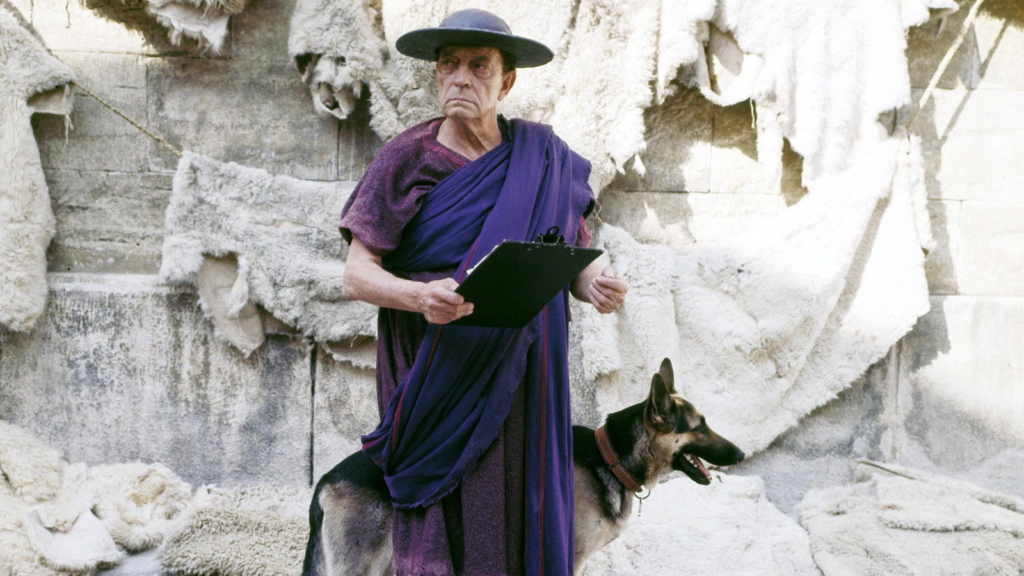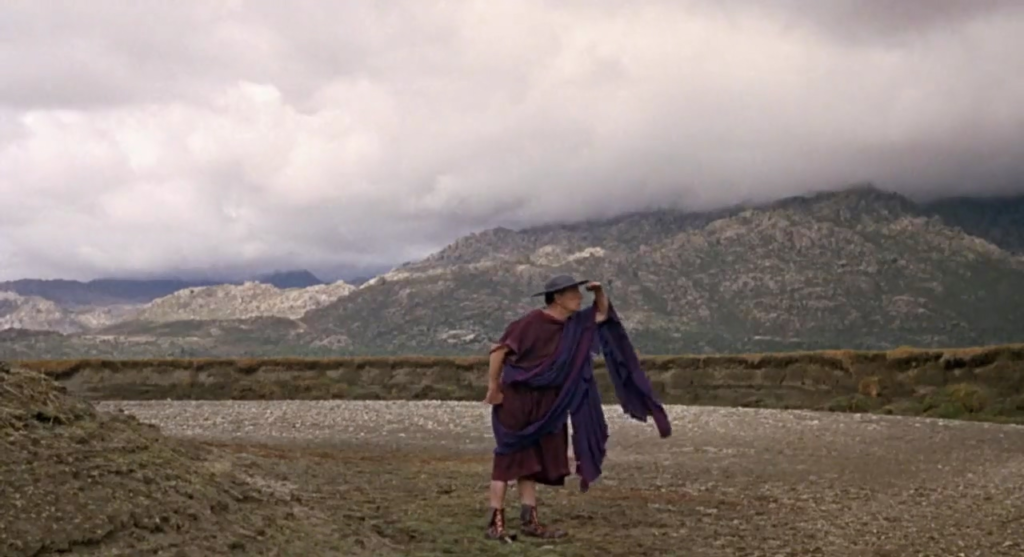
"No man can be a genius in slapshoes and a flat hat." -Buster Keaton -

"No man can be a genius in slapshoes and a flat hat." -Buster Keaton -
A Funny Thing Happened on the Way to the Forum is a 1966 musical comedy film set in a historical period. Directed by Richard Lester, it stars Zero Mostel and Jack Gilford, who reprise their stage roles. The film also boasts Buster Keaton in his final screen appearance, along with Phil Silvers, originally intended for the stage musical. The cast further includes regular Lester collaborators Michael Crawford, Michael Hordern, and Roy Kinnear.

This film adaptation draws inspiration from the stage musical of the same name, which featured music and lyrics by Stephen Sondheim and a book by Burt Shevelove and Larry Gelbart. It was inspired by the farces of the ancient Roman playwright Plautus (251–183 BC), particularly Pseudolus, Miles Gloriosus, and Mostellaria. The story revolves around a witty slave named Pseudolus, who strives for freedom by assisting his young master in winning the affections of the girl next door.
In ancient Rome during Emperor Nero’s reign, Pseudolus, the craftiest and most deceitful slave in the city, yearns for one thing – his freedom, which can be bought from his master’s parents, Senex and Domina. Their son, Hero, is smitten by the lovely Philia, who is unfortunately promised to the mighty Roman warrior Miles Gloriosus.

Pseudolus strikes a deal with Hero to win Philia’s heart in exchange for his own freedom. However, a twist in fate occurs when Miles Gloriosus arrives to claim his bride. Pseudolus and his partner, Hysterium, attempt to deceive the captain by staging a mock orgy to delay his plans. When a phony Philia miraculously comes back to life, chaos ensues as a frantic chase unfolds through the streets of Rome and beyond.

The uproarious escapade concludes with Hero winning Philia’s love, a surprising revelation about Senex’s neighbor, Erronius, and the fate of several characters intertwining in unexpected ways. Justice prevails, and Pseudolus secures his freedom, gains the formidable Gymnasia as his wife, and receives a generous dowry from Marcus Lycus.
Buster Keaton, known for his physical comedy, displayed his daring nature on set. Despite illness, he improvised a tree-branch collision and fall, leaving director Richard Lester and the crew shocked. Tragically, this film marked Keaton’s last appearance, as he passed away on February 1, 1966, at seventy.

This film stands out as one of the few featuring Buster Keaton with a stunt double due to his battle with terminal cancer. Mick Dillon stood in for running sequences, but Keaton executed his signature pratfall personally. Notably, the animated end credits, designed by Richard Williams, feature many houseflies, a humorous nod to the on-set fly problem.

While Phil Silvers was the original choice for the musical, Zero Mostel played Pseudolus on Broadway. Richard Lester, Zero’s preferred director for the film adaptation, led the project. Notable names considered for directing included Charlie Chaplin, Orson Welles, and Mike Nichols. Filming took place in Madrid, Spain, with a budget approximated at $2 million, spanning from September to November 1965.
The film maintained a connection to its Broadway origins. Jack Gilford reprised his role as Hysterium, and Tony Walton, the Broadway show’s costume designer, also worked on the film’s production design. Renowned stunt coordinator Bob Simmons choreographed and performed action scenes.

George Martin and Ethel Martin, credited as choreographers, worked closely with renowned choreographer Jack Cole on Broadway. Cinematographer Nicholas Roeg later transitioned to the director’s role for several notable films.